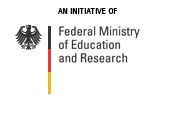Ingrid Herr: Enlightened approach to cancer prevention
-
 <ic:message key='Bild vergrößern' />
<ic:message key='Bild vergrößern' />
- Ingrid Herr researches the therapeutic effects of secondary plant substances. Source: University Hospital of Heidelberg
18.07.2012 -
Ingrid Herr practises what she preaches: In the morning, the biologist travels to work 15 km by bike, and she is careful to maintain a healthy diet and to get enough fresh air and exercise. The professor at the German Cancer Research Center in Heidelberg has now been awarded the Sebastian Kneipp Price for the basic research underlying this good advice: She and her team have demonstrated that the components of cruciferous vegetables such as broccoli and cauliflower inhibit the growth of the highly aggressive tumour stem cells in pancreatic cancer. The prize is worth 10,000 euros and this year recognises studies into the preventive and therapeutic effects of secondary plant substances. The award is not only for research work but also for Herr's commitment to bringing this research to patients.
Ingrid Herr comes from Bretten in Württemberg and was already interested in the life sciences as a schoolgirl. After high school – already with biology as a main subject – and a voluntary year of social service, the now 49-year-old first worked as a clerk before beginning biology studies in Ulm. "It was a brief interlude to earn some money," she says. "I've always been interested in biology." She tackled the subject of cancer for the first time in her thesis. Therein, she studied the regulation of the p53 protein, before undertaking her doctorate in Karlsruhe on the transcription factor c-jun. This was basic research oriented towards cancer therapies. "It was all extremely abstract," she says today. "I wanted to work in a research area where you could also see results getting to the patients quickly."
Chasing down cell death
In 1995 she began work as a research associate in the clinical cooperation unit 'Molecular Oncology/Pediatrics'. Her boss, former head of the Heidelberg Clinic, Klaus-Michael Debatin, is considered an expert in the field of children’s oncology. The group primarily studied tumours in childhood. "At the time, apoptosis was still completely uncharted territory," says Herr. "That was exciting; we followed the role of programmed cell death in cancer like a jigsaw puzzle, gradually piecing together a better picture. Back then we were working a lot at night and on weekends, and we published a great deal. It was an incredibly exciting time." Although the biologist was working exclusively in the laboratory, the human component of the project was also an important factor. "I had blood samples from children who had been diagnosed with cancer, or who were infected with HIV," she says. "And of course we saw what was going on in the children's hospital. I was very motivated to find something to combat cancer." When Debatin was appointed to the Children's Hospital Ulm, Herr became deputy head of the Heidelberg cooperation project.
Following habilitation in 2001, she conducted research into prostate cancer. It was at this time that she first came into contact with the projects funded by the Federal Ministry of Research, with the preparatory work later developing into the experiments on the cancer-preventive effects of cruciferous plants. Broccoli, cauliflower and other related plants contain sulforaphane, which makes tumor cells more vulnerable. The substance reduces the typical pathways of stem cells that are responsible for the high level of resistance to therapy. "Sulforaphane blocks the NF-kappa B signalling pathway. This pathway is a key mechanism protecting the extremely aggressive tumor cells of pancreatic cancer," says Herr. And there's more: "Our experimental results are confirmed by a large dietary study in which frequent consumption of broccoli or cauliflower reduced the risk of metastasis in men with prostate cancer by 50 percent.
More on this subject on biotechnologie.de |
| News: Broccoli patent trimmed down: Biomarkers no longer protected |
This indicates that sulforaphane also targets tumor cells in patients." Herr and her team are now eying up other fruit- and vegetable-derived substances: This list includes quercetin, likewise found in broccoli and many other fruits and vegetables.
Broccoli sprouts are the best
Sulforaphane is not yet available as a medicinal product, and especially with regards to cancer, there is some way to go to proving its effectiveness. Herr is also sticking to this line, and is careful not to overstate the case. "We know that a healthy lifestyle and plenty of fruits and vegetables reduces the risk of cancer," she says. This general advice is also nothing new among patients; Herr says that she gets about three e-mails per day asking for advice. For such cases, she and her team have published a leaflet with scientifically recognised tips on diet and lifestyle for cancer sufferers. "I recommend a balanced diet," she says. Not only broccoli is healthy, but many other fruits and vegetables contain substances which further enhance its effects. She has one more tip for a high dose of sulforaphane: "Eat your broccoli sprouts, which has a concentration of sulforaphane that’s 20-100 times higher than the vegetables."
When she's not working on reports, applications and manuscripts, she likes to spend her free time with her partner and the tortoises in the garden. Naturally, these animals also enjoy a healthy diet – Herr collects wild herbs for her pets. Apparently with success: The turtles have been laying eggs, and four have recently hatched. The animals are her balance to life in the laboratory: "Watching turtles is very calming."
Author: Cornelia Kästner




